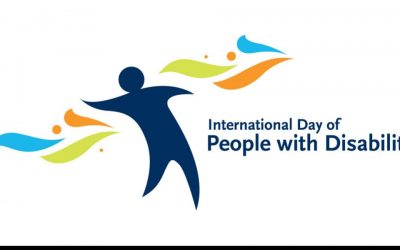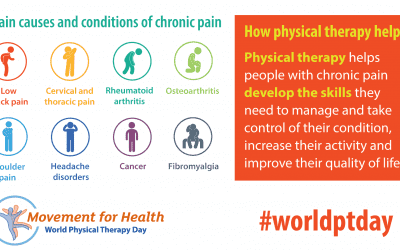As we get older it is expected that we become stiff and tight isn’t it? It’s just a part of ageing and there isn’t anything I can do about it, correct?
NOPE!

As our mobile Physiotherapists always preach, our bodies will continually, up until our final day, respond to any type of stimulus. As we age our bodies may take longer to respond to this stimulus and that’s why frequency and consistency matters.
As we age we may lose range of motion and feel stiff due to:
– Lack of movement and regular exercise
– Loss of strength
– Pain and discomfort
– Arthritic conditions
– Stress / lack of sleep
– Nutritional and diet related factors
The GOOD news is we can help. We have help many clients during home visits to improve their flexibility and range of motion.
Our mobile Physiotherapy service can help improve range of motion, reduce pain and optimise function. We may not be able to get you back to your 20’s but we can ensure you have good function and can move about safely in your home!
Below are the On the Road Physiotherapy top tips to maintain your movement well into your golden years.
1. Move all your joint through full range of motion every day
As mentioned above, your body will respond to the tasks asked of it. So we need to move our joints through full ROM daily to keep this range, otherwise we will lose it.
It takes less than 5 minutes, start at the feet, circle both ankles, kick your heel back to bend your knees, Pull your hips up, move your spine, roll your shoulders, move your neck, stretch your arms overhead and have some big deep breaths.
That’s basically it. Do that 2-3 times and done!
2. Walk daily
Daily walking helps to maintain joint ROM, balance, muscular strength / endurance, cardiovascular fitness, body weight and brain health. Aim for 30 minutes daily.
3. Keep up a strength program
Strength training helps to improve all aspects of physical and mental health. Maintaining muscle mass and bone density are crucial as we age to assist with keeping independent and reducing injuries. Aim for 2 x per week.
An example of some beginner strength training would be:
o 15 repetitions of sit to stand from a chair
o 15 push ups on a stand surface like the back of a lounge
o 15 heel raises
o 15 over head presses with a 2L milk jug filled with water.
– REPEAT this 2-3 times with minimal rest (only as needed)

4. Manage pain
Pain will reduce QOL, affect sleep, mood and activity levels. If you are experiencing regular pain speak with your doctor to discuss appropriate interventions both pharmacological and non-pharmacological.
5. Relaxation time is crucial
Stress will exacerbate any pain or medical condition. Make sure that you find a way to relax and escape from any stressors in your life. Quiet reading, meditation, long walks and gardening are all good options to name just a few.
6. Eat well and drink plenty of water.
Our body requires good fuel to help us function at our best. Ensure that you are eating a good balanced diet with plenty of fruits and vegetables. Ensure that you are drinking sufficient water daily as well. It is recommended to drink 8-10 cups per day for women and men respectively.

If you have concerns about your diet speak to your doctor and an allied health professional such as a dietician.
As our mobile Physiotherapists always preach, our bodies will continually ,up until our final day, respond to any type of stimulus. As we age our bodies may take longer to respond to this stimulus and that’s why frequency and consistency matters.
As we age we may lose range of motion and feel stiff due to:
– Lack of movement and regular exercise
– Loss of strength
– Pain and discomfort
– Arthritic conditions
– Stress / lack of sleep
– Nutritional and diet related factors
The GOOD news is we can help. We have help many clients during home visits to improve their flexibility and range of motion.
Our mobile Physiotherapy service can help improve range of motion, reduce pain and optimise function. We may not be able to get you back to your 20’s but we can ensure you have good function and can move about safely in your home!
Below are the On the Road Physiotherapy top tips to maintain your movement well into your golden years.
1. Move all your joint through full range of motion every day
As mentioned above, your body will respond to the tasks asked of it. So we need to move our joints through full ROM daily to keep this range, otherwise we will lose it.
It takes less than 5 minutes, start at the feet, circle both ankles, kick your heel back to bend your knees, Pull your hips up, move your spine, roll your shoulders, move your neck, stretch your arms overhead and have some big deep breaths.
That’s basically it. Do that 2-3 times and done!
2. Walk daily
Daily walking helps to maintain joint ROM, balance, muscular strength / endurance, cardiovascular fitness, body weight and brain health. Aim for 30 minutes daily.
3. Keep up a strength program
Strength training helps to improve all aspects of physical and mental health. Maintaining muscle mass and bone density are crucial as we age to assist with keeping independent and reducing injuries. Aim for 2 x per week.
An example of some beginner strength training would be:
o 15 repetitions of sit to stand from a chair
o 15 push ups on a stand surface like the back of a lounge
o 15 heel raises
o 15 over head presses with a 2L milk jug filled with water.
– REPEAT this 2-3 times with minimal rest (only as needed)
4. Manage pain
Pain will reduce QOL, affect sleep, mood and activity levels. If you are experiencing regular pain speak with your doctor to discuss appropriate interventions both pharmacological and non-pharmacological.
5. Relaxation time is crucial
Stress will exacerbate any pain or medical condition. Make sure that you find a way to relax and escape from any stressors in your life. Quiet reading, meditation, long walks and gardening are all good options to name just a few.
6. Eat well and drink plenty of water.
Our body requires good fuel to help us function at our best. Ensure that you are eating a good balanced diet with plenty of fruits and vegetables. Ensure that you are drinking sufficient water daily as well. It is recommended to drink 8-10 cups per day for women and men respectively.
Image Source: https://yurielkaim.com/cheat-meals/
If you have concerns about your diet speak to your doctor and an allied health professional such as a dietician.




